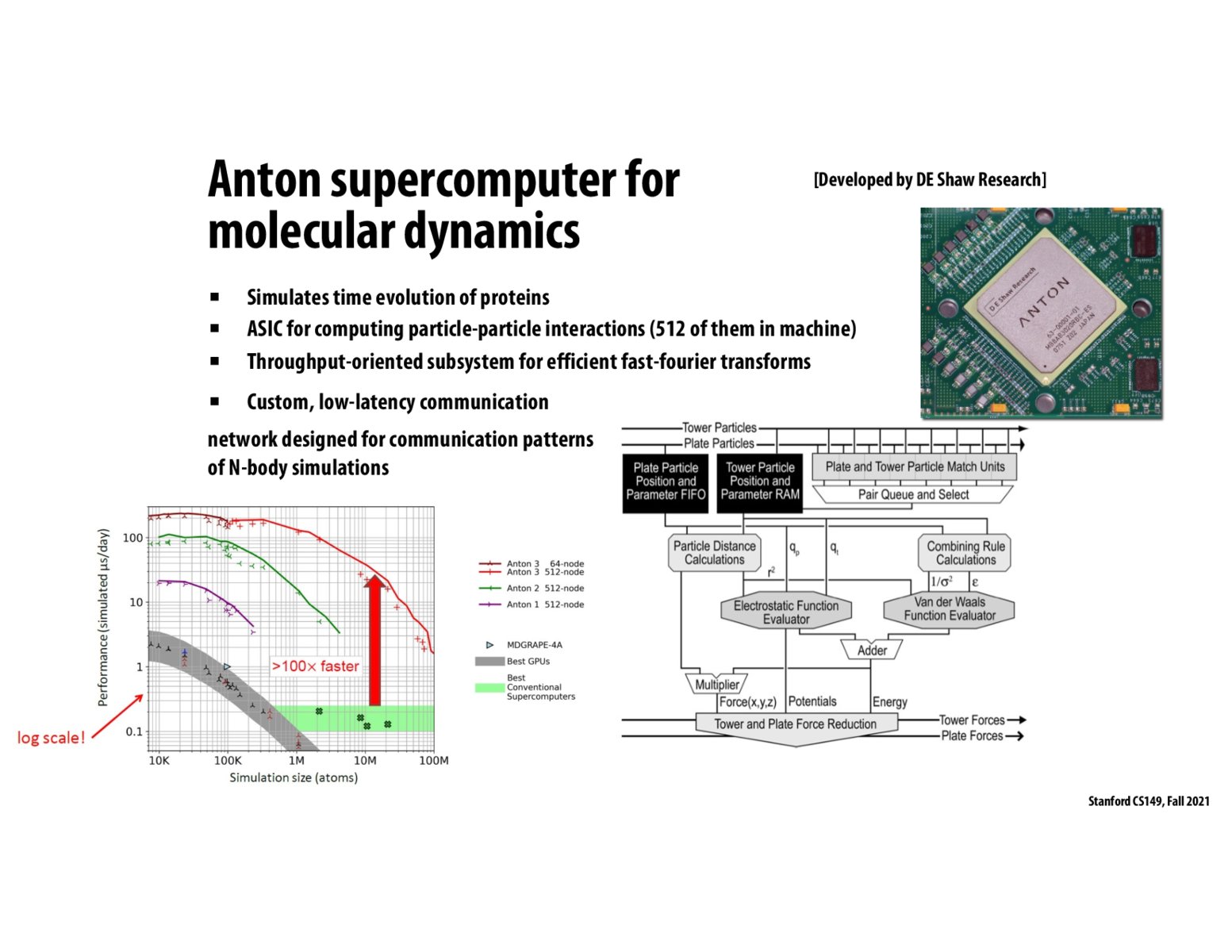


@jenna I also think that it's very cool that we are designing ASIC chips. My concern is that these chips may be wasteful in the long run because they cannot be easily repurposed. Consider a situation in which you build ASICs to solve a particular task, but then someone develops an algorithm that's 10x faster. Now all the chips are obsolete and can't be reprogrammed. That being said, I do think ASICs are very useful for implementing common primitives like FFTs or tensor operations.
As an aside, if you're interested in protein folding, you may find Alphafold interesting - https://www.nature.com/articles/s41586-021-03819-2

@sanketg Agreed, but if we know that a chip will be used for a particular purpose for a long time, and we can make it in large enough quantities to take advantages of 'economies of scale', the tradeoffs in terms of power/speed usage (we use a chip for less time with less energy usage, which results in many other benefits in terms of heat/battery usage, etc.) make it better to use ASICs, especially when one concerns that chips are not reused as frequently as one would wish.
Please log in to leave a comment.
I think it is extremely cool that we are designing computer chips that are specific to specific applications. I think we have reached the age in which we have the resources and knowledge to promote more of this type of technology development. Consider for a moment if we worked instead to perform more data specific hardware creation instead of social media advances. If we are able to restructure our priorities we certainly have the knowledge to solve, or attempt to solve an abundance of issues. Anyone have thoughts on this?